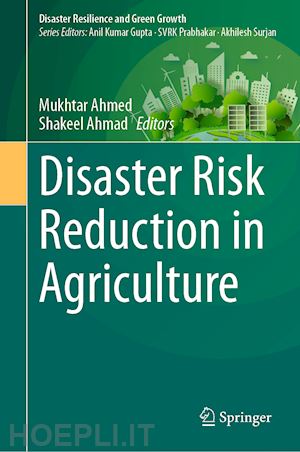
Questo prodotto usufruisce delle SPEDIZIONI GRATIS
selezionando l'opzione Corriere Veloce in fase di ordine.
Pagabile anche con Carta della cultura giovani e del merito, 18App Bonus Cultura e Carta del Docente
Dr. Mukhtar Ahmed’s research focuses on the impact of climate change on crop ecology, crop physiology, cropping system, and rain-fed ecosystem management. He has specialization in the field of environmental sciences, precision agriculture, agro-ecosystem modeling, climate change, and climate variability with teaching and research experience. He has research experience from Sydney University, Australia, where he worked on the application of APSIM as a decision support tool, and rainfall forecasting using generalized additive models.
Dr. Shakeel Ahmad is Professor of Agronomy at Bahauddin Zakariya University, Multan, Pakistan since 2016. In 2006, he received PhD from the University of Agriculture, Faisalabad. Later, he completed postdoctoral research from the University of Georgia, USA. He has been devoting himself to teaching and research regarding field crops focusing on crop modeling, climate change, and adaptation strategies. He earned Research Productivity Award for 5 years from Pakistan Council for Science and Technology through the Ministry of Science and Technology, Government of Pakistan, Islamabad.










Il sito utilizza cookie ed altri strumenti di tracciamento che raccolgono informazioni dal dispositivo dell’utente. Oltre ai cookie tecnici ed analitici aggregati, strettamente necessari per il funzionamento di questo sito web, previo consenso dell’utente possono essere installati cookie di profilazione e marketing e cookie dei social media. Cliccando su “Accetto tutti i cookie” saranno attivate tutte le categorie di cookie. Per accettare solo deterninate categorie di cookie, cliccare invece su “Impostazioni cookie”. Chiudendo il banner o continuando a navigare saranno installati solo cookie tecnici. Per maggiori dettagli, consultare la Cookie Policy.